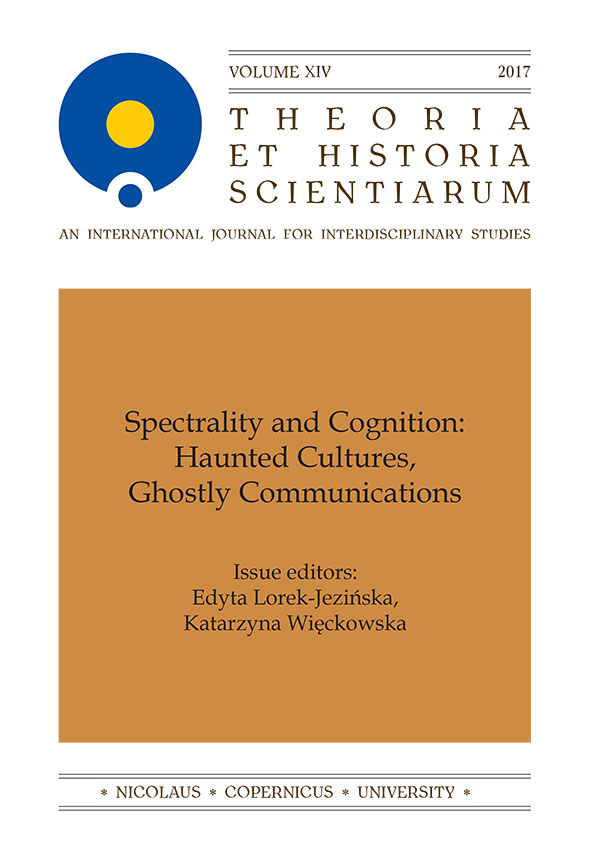The Haunted City: Spectres of Colonial Past in Vandana Singh’s “Delhi”
DOI:
https://doi.org/10.12775/ths.2017.008Keywords
postcolonial studies, hauntology, writing back, postcolonial haunting, urban space, historical narrativeAbstract
Even though the British colonial rule over India ended in 1947, its spectres haunt the nation until this day. Since then, Indian postcolonial writing—both of the realist and fantastic kind—has attempted to reconcile the past of the nation with its present, addressing the legacy of the haunting spectres of the colonial rule. With that in mind, the following article seeks to explore the way in which Vandana Singh, in her short story “Delhi,” engages in a discussion concerning the intersection between spectral hauntings of the colonial past and the counter-discursive, revisionist practice of reclaiming and rewriting the colonial narrative by the Othered subject personifed by the protagonist. Adopting the postcolonial discourse as well as theory of science fction as the primary methodological framework, the paper argues that for Singh, the act of haunting facilitates reclamation of the lost history and memories of the city and ultimately contributes to the revision of the colonial account. Thus, in Singh’s “Delhi,” the spectres of the past become liminal, incorporeal entities, no longer confned to the sphere of abstraction and metaphor, enabling the postcolonial act of writing back.References
Ashcroft, B. (2001). Post-Colonial Transformation. London: Routledge.
Bhabha, H. (1994). The Location of Culture. London: Routledge.
Buse, P. and Scott, A. (1999). Ghosts: Deconstruction, Psychoanalysis, History. London: Macmillan.
Candelaria, M. (2009). “Reading Science Fiction with Postcolonial Theory.” In: J. Gunn, M. S. Barr, and M. Candelaria, ed. Reading Science Fiction. New York: Palgrave Macmillan. 133–131.
Derrida, J. (1994). Specters of Marx: The State of the Debt, the Work of Mourning, and the New International. London: Routledge.
Gordon, A. (1997). Ghostly Matters: Haunting and the Sociological Imagination. Minneapolis: University of Minnesota Press.
Jameson, F. (2007). Archaeologies of the Future. London: Verso, 2007.
Rieder, J. 2005. “Science Fiction, Colonialism, and the Plot of Invasion.” Extrapolation, 46 (3): 373–394.
Rieder, J. (2008). Colonialism and the Emergence of Science Fiction. Middletown, CT: Wesleyan University Press.
Roberts, A. (2000). Science Fiction: The New Critical Idiom. London and New York: Routledge.
Singh, V. (2004). “Delhi.” In: N. Hopkinson and U. Mehan, ed. So Long Been Dreaming: Postcolonial Science Fiction and Fantasy. Vancouver: Arsenal Pulp Press. 79–94.
Suvin, D. (1988). Positions and Presuppositions in Science Fiction. Basinstoke: Palgrave Macmillan.
Tiffn, H. (2002). “Post-Colonial Literatures and Counter-Discourse.” In: B. Ashcroft et al., ed. The Post-Colonial Studies Reader. London and New York: Routledge. 95–98.
Wolmark, J. (2005). “Time and Identity in Feminist Science Fiction.” In: David Seed, ed. A Companion to Science Fiction. Malden: Blackwell Publishing. 156–170.
Downloads
Published
How to Cite
Issue
Section
Stats
Number of views and downloads: 2271
Number of citations: 0



